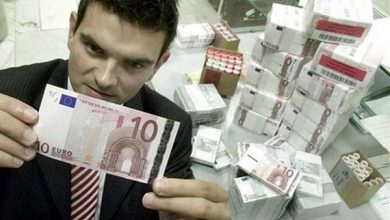European Union Leaders Summit
The leaders of the European Union at the summit in Brussels agreed to double financial assistance to non-euro area countries of Central and Eastern Europe affected by the economic crisis. At the same time, EU leaders rejected the US call for additional funds to stimulate its economy in deep crisis.
The European Union has offered cooperation in the framework of the Eastern Partnership program to the six republics of the former USSR.
EU leaders have spoken out against new stimulus packages the United States is calling for. Is there any fundamental difference in the economic approach to solving the economic crisis, or is it just some one-time differences?
It seems that this is a disagreement with the new US administration of Barack Obama, a disagreement in the economic, and maybe in the political philosophies of the European Union and the United States. The United States is calling on Europe to follow the Obama administration’s path. These are financial injections of colossal proportions. Europeans today are not ready for such measures. Most of them believe that the market can be stimulated in another way, in particular, by regulating the activities of banking institutions and financial systems. Europe is betting on this, believing that any government spending should not exceed any specific measure of gross domestic product. And in the United States today, spending is double that Europe intends to afford. This is the main discrepancy.
How unexpected was the decision to discuss the allocation of funds for the Nabucco gas pipeline, whose goal is to reduce the independence of Europe from supplies from Russia? Indeed, many experts have doubts about the economic feasibility of this construction.
The European Union is not yet a political and administrative whole. Great Britain, for example, is leaning toward the American model, while continental Europe and the current EU chairman, the Czech Republic, are more likely to take more conservative recipes for economic recovery.
There were a number of misunderstandings regarding the Nabucco oil and gas pipeline. At first, the European Union allegedly deleted this project from its list of priorities. However, at the end of the Brussels summit, it becomes clear that, on the contrary, this project received a “green street”. But in any case, you need to be clearly aware that we are talking about upfront costs, which will not exceed $ 5 billion. The only result that can be clearly outlined today is that the gas pipeline and oil pipeline were not excluded from the EU plans for the near future.
Another solution concerns the doubling of the Emergency Assistance Fund to the Member States of the European Union. It is known that some of these countries need urgent support. But why is assistance provided to countries outside the euro area?
It is, first of all, about the countries of Central and Eastern Europe. Here the question was actually solved: is it necessary to perceive the whole region as a whole, which requires the same approaches? Or, on the contrary, consider the situation in each country separately? Ultimately, the second approach prevailed, as the current EU chairman, the Czech Republic, has been and remains an opponent of “cutting the entire region under one comb.”
It was decided to double the Fund for Assistance to Central and Eastern European Countries Outside the Euro Area from 25 to 50 billion dollars. But this money will be distributed only on an individual basis. We must constantly remember that we are talking about debts that sooner or later have to be repaid. This is not gratuitous help.
Some political decisions were discussed at the summit. In particular, the talk was about the Eastern Partnership program. How unexpected was the inclusion of Belarus in the list of countries participating in this program?
This was the main intrigue of the current Brussels summit, since Belarus far from satisfies the ideas and requirements of the European Union, especially in the field of respect for human rights and the observance of democratic institutions of political pluralism. As a result, Belarus decided to leave – not to turn it on, but to leave it! – in the list of six post-Soviet states, in which there are both Ukraine and Moldova, and the South Caucasian states.
This does not mean that Lukashenko or his representatives will be invited to the summit, which will open in Prague on May 7, and will be the start of the entire Eastern Partnership program. It may turn out that Lukashenko will be invited, especially if some compromises can be reached – or maybe not. This issue will be resolved somewhat later, perhaps only on the eve of the summit in Prague. In any case, the program does not mean massive economic assistance. First of all, it means helping to rebuild democratic institutions, political pluralism and anti-corruption measures. But in the future, it provides various options for economic and political integration into European structures, that is, these are actually open doors to Europe for six post-Soviet states.
And now the opinion of another European expert, a specialist in the Baltic countries, Nikolai Meinert. Nikolay, it has been said a lot that the current economic crisis among the EU countries has hit the Baltic countries hardest. How effective will the decisions taken at the EU summit in Brussels be in relation to the Baltic states?
We can say that the European Union treated the Baltic countries very loyally. At least, the decision to double the funds allocated to support the Eastern European economies is good news, given that on March 1, the Hungarian plan to allocate a large package (190 billion) for the eastern countries was rejected. Then, of course, cautious remarks appeared in the Baltic countries: they say that they treat us not quite as we deserve it.
But, it seems to me, this is a wrong assessment. Firstly, the Baltic states have abused their economic growth somewhat. It seems to me that the Eastern European (or post-Soviet) mentality, led to the fact that sometimes I wanted to look better than it really is. Many experts in the Baltic countries doubted the real achievements of the Baltic economies.
I think that the crisis has sobered up so many, in the sense that you can’t bluff, you need to really engage in your own economy. Those who were very eager to advance, first of all, Latvia, found themselves in the most difficult situation. Who was careful, Lithuania, for example. Estonia was also able to solve problems with its 2009 budget. And the European Union said it would not leave these countries in trouble, but made it clear that there would be unlimited spending. Brussels made it very clear that no one would throw money, and they were not going to pull the banks out of the hole, as, for example, quite often happens in the United States.
Do you think that the Baltic countries are able to soberly evaluate this now?
I think that nothing else remains, because the turbulent period of euphoria, gradually begins to fade. Quite often, many decisions of the leaders of the Baltic countries were criticized. In any case, the Estonian Prime Minister Andrus Ansip had to listen to a lot of criticisms about the fact that he did not solve the economic problems facing the country. The country began to slide into crisis even before this crisis swept the whole world. This was discussed for a long time – almost two years ago. And a year ago at that time there were already publications in the republican, European, Russian press about the fact that the Baltic countries, in particular, Estonia, were facing a crisis, and the government was passive.
I am a supporter of the cautious measures that Brussels is taking. The policy of the European Union is justified, since this association is primarily economic. It considers benefits, and there is no political ambition. There is no desire to rule the world that quite often stands behind American decisions. In Brussels, it was said: we will help countries that need help. But in each case, we will consider the package of measures separately, step by step. It concerned both Latvia and Hungary. Now Romania also wants support. While Poland, which developed in the most cautious way, not only does not ask for help, but even says that perhaps it will be able to donate something to the common piggy bank.
This shows who is better and who is worse at coping with the tasks assigned to him. And Brussels in this regard can only support and stimulate the right decision, as well as warn in case of a dangerous choice.
This post is also available in:
 English
English  Русский (Russian)
Русский (Russian)




